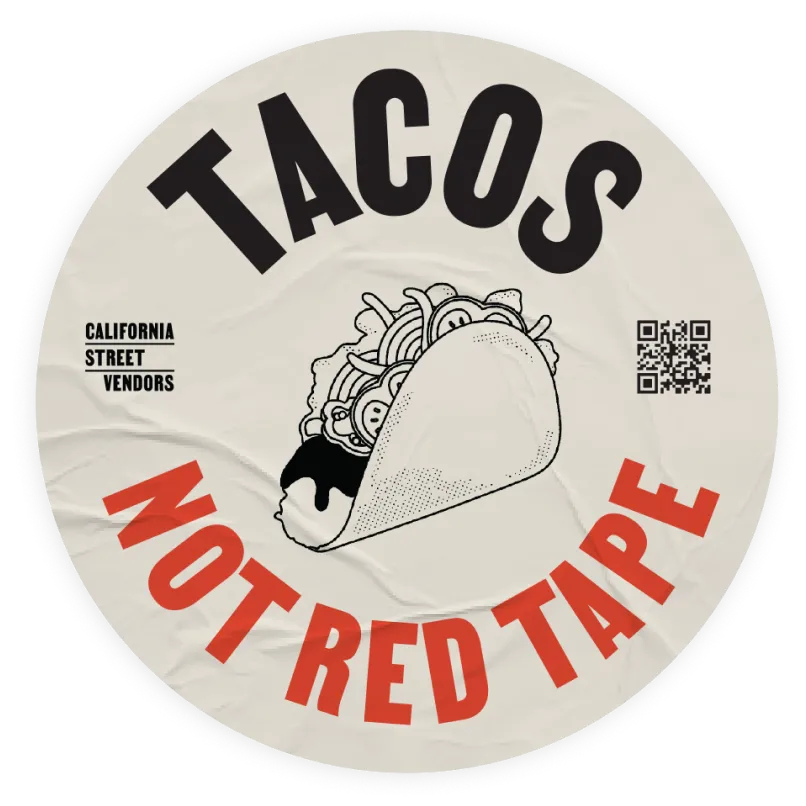Vending is not a crime
Street vendors contribute to a thriving local economy and are a crucial part of pandemic recovery efforts. In Los Angeles alone, an estimated 12,500 street food vendors generate millions of dollars in revenue every year. Removing the obstacles to street vendors at a time when outdoor dining is at its peak is a commonsense way to bring legitimacy and opportunity to these small businesses.
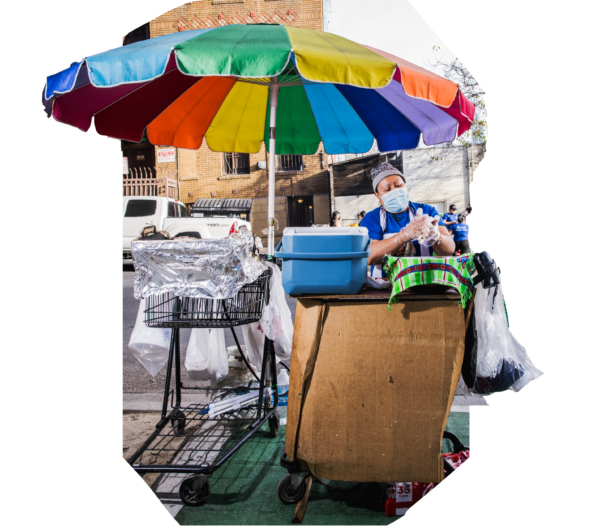
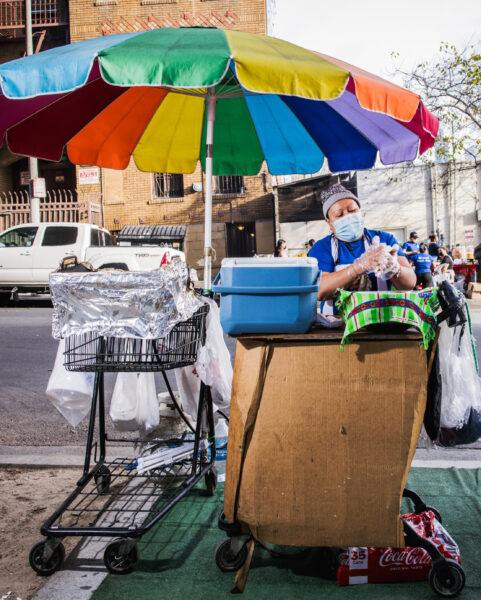
1 — The Challenge
Removing barriers to lift people up
The California Retail Food Code (CRFC) is outdated and holds street food vendors to the same permitting process as full-scale, brick-and-mortar restaurants. While vending is legal in many cities, the outdated state retail food rules do not account for street vending and thus prevents most vendors from obtaining the permits needed to sell their food legally. Without legal backing, local street vendors are being harassed, targeted, and marginalized.
Street vendors are hard-working community members who contribute to the overall economy, and provide much-needed accessibility to affordable food options in communities that may otherwise face food scarcity. The need to modernize the retail food code resulted in legislation crafted by and for street vendors to ensure healthy and safe outcomes for vendors and consumers alike. Senate Bill (SB) 972 does just that.

2 — The Brand
Community at the forefront
The best way to build a campaign rooted in the community? Have the community do the talking. Portrait photography of street vendors working, cooking, and interacting with customers brought intimacy and humanity to the campaign, while storytelling and direct quotes supported the narrative that SB 972 is legislation created by and for street vendors.
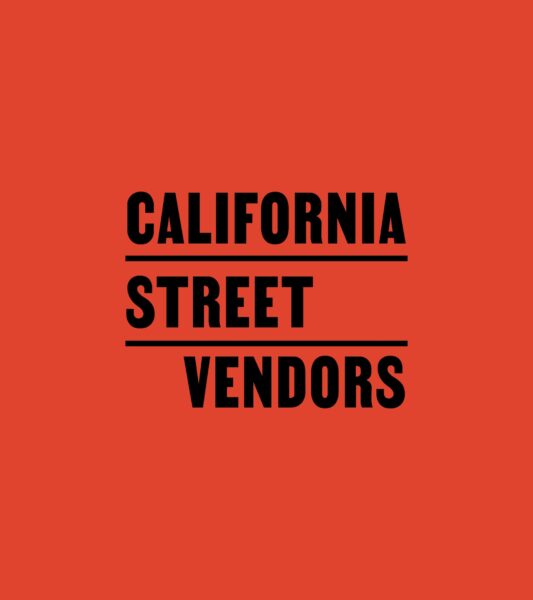
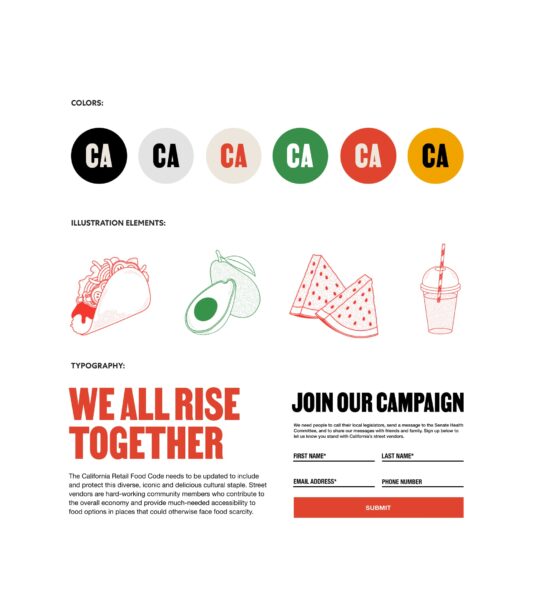
Identity Development — Swell worked with the team at Odd Notion studio to create a brand that combined lively colors, street-inspired typography, and illustrations to highlight the people behind the foods you love.
Photography — We collaborated with photographer Christina Gandolfo to hit the streets and document the culture of street vendors in California.
3 — The Reach
Telling the story of street vendors through earned media
To gain support, particularly from elected officials, we secured coverage in major media outlets where we framed SB 972 as a bill that does more than protect food stands—it protects the cultural and financial backbone of California communities. By emphasizing SB 972’s potential to benefit all Californians, from street vendors to their customers and everyone in between, we achieved bipartisan appeal in the legislature.
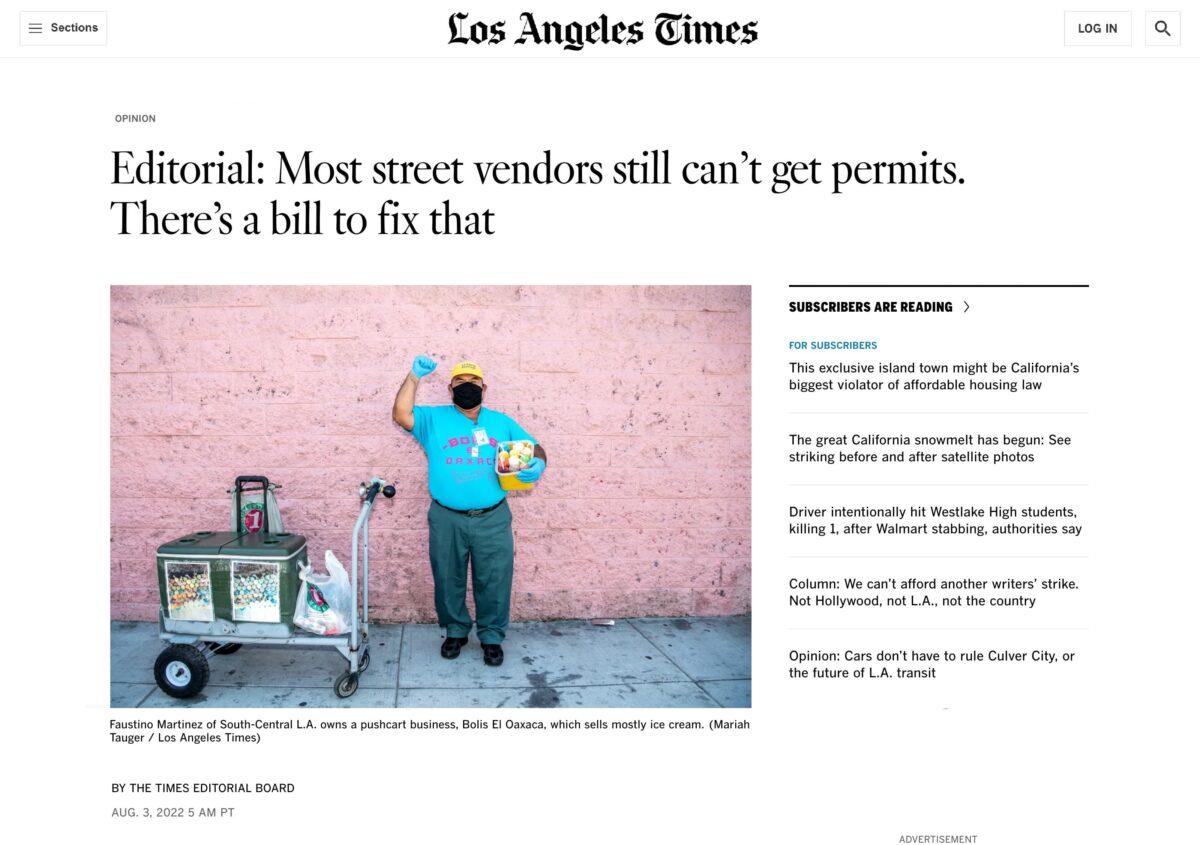
Media Placement — Leading up to a key vote in the California legislature, we made sure editorial boards at media outlets like the LA Times put pressure on elected officials in support of our bill.
Strategic Coverage — Op-eds and feature news articles across well-known news publications, including Los Angeles Times, L.A. Taco, and Los Angeles Daily News, as well as food journalism outlets such as Eater, were vital in earning support from both community members and state policymakers.
4 — Driving Action
Mobilizing a digital community
Through social media we activated both coalition partners and grassroots supporters across Instagram, Facebook, and Twitter to bring our demands straight to key policymakers.
At crucial stages of SB 972’s legislative process, we distributed auto-populated scripts in both English and Spanish featuring key talking points and links that easily lead to “one click” digital advocacy actions—including click-to-email, click-to-call, and click-to-tweet. This allowed people to quickly and easily call or message key policymakers and increase pressure leading up to major votes.
Partner Toolkits — We provided partner organizations with comprehensive social media toolkits in both English and Spanish to keep SB 972 messaging consistent, recognizable, and accessible to the most impacted communities.
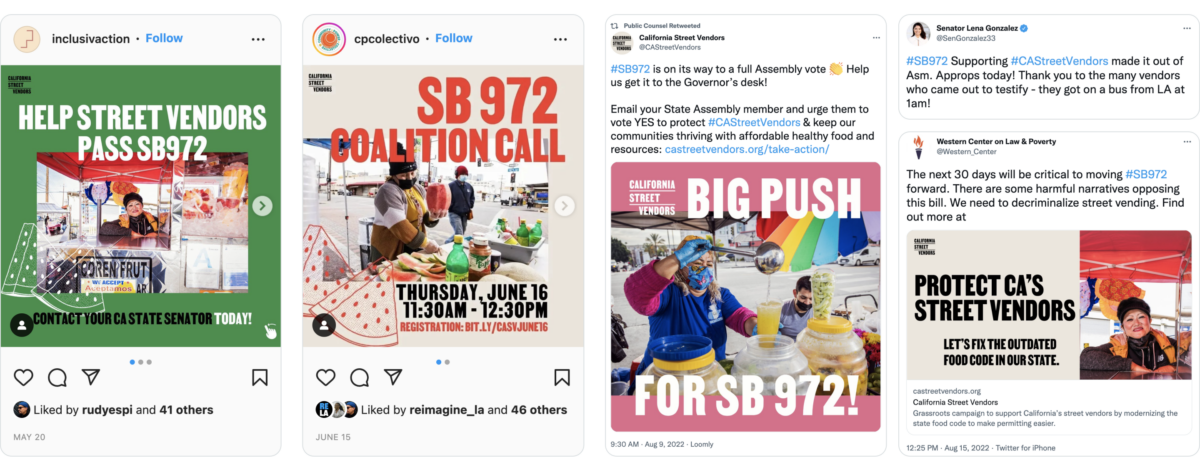
Partner Activation — Coalition members used our social media toolkits to bring our message to new audiences, creating a widespread, cohesive media presence across thousands of feeds.
5 — The Website
Leveraging digital organizing
Our clean, user-friendly design made it easy for visitors to donate and join the movement, while our nimble software also allowed us to routinely update our key call-to-action as SB 972 moved through the state legislature, keeping our supporters informed and activated throughout the entire process.
Web Design — We developed a website that not only continued our street vendor-driven narrative, highlighting personal stories from local shop owners, but also served as an information and advocacy hub for the coalition.
6 — Social Media
Narrative change brings policy change
Photography and content centering street vendors and their contributions to California’s vibrant culture drove our social media strategy from day one. We needed to make it clear that SB 972 and the movement to pass it were not created by faceless organizations or politicians, but by everyday Californians with names, faces, and stories.
By highlighting personal narratives of culture, endurance, and opportunity, our social media offered an intimate perspective on micro-entrepreneurship that stressed the need for SB 972 without getting lost in the legislative weeds.
Social Media — To connect with people and drive engagement, we created bespoke social posts and a series of templates that were used by the client for announcements and vendor profiles.
7 — The Impact
By the numbers
Together, Swell and California Street Vendors established a growing coalition of engaged partners, street vendors, and community, secured and amplified public endorsements from elected officials, and generated enough buzz from hundreds of Californians across the state to take action. After more than 1,200 direct calls and emails to legislators, street vendors won. Senate Bill 972 was signed into law by Governor Gavin Newsom on September 23, 2022.
